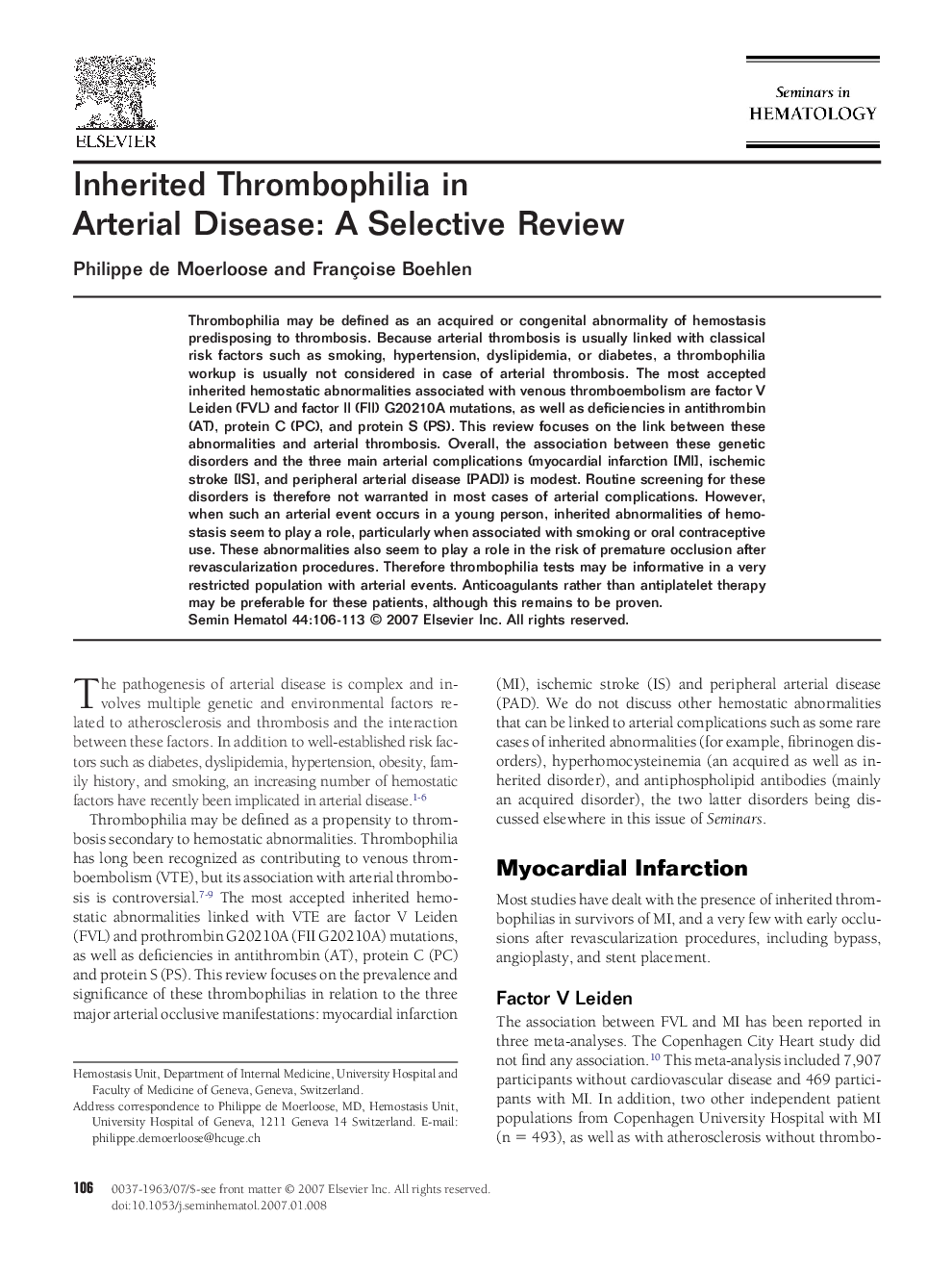| Article ID | Journal | Published Year | Pages | File Type |
|---|---|---|---|---|
| 3333934 | Seminars in Hematology | 2007 | 8 Pages |
Thrombophilia may be defined as an acquired or congenital abnormality of hemostasis predisposing to thrombosis. Because arterial thrombosis is usually linked with classical risk factors such as smoking, hypertension, dyslipidemia, or diabetes, a thrombophilia workup is usually not considered in case of arterial thrombosis. The most accepted inherited hemostatic abnormalities associated with venous thromboembolism are factor V Leiden (FVL) and factor II (FII) G20210A mutations, as well as deficiencies in antithrombin (AT), protein C (PC), and protein S (PS). This review focuses on the link between these abnormalities and arterial thrombosis. Overall, the association between these genetic disorders and the three main arterial complications (myocardial infarction [MI], ischemic stroke [IS], and peripheral arterial disease [PAD]) is modest. Routine screening for these disorders is therefore not warranted in most cases of arterial complications. However, when such an arterial event occurs in a young person, inherited abnormalities of hemostasis seem to play a role, particularly when associated with smoking or oral contraceptive use. These abnormalities also seem to play a role in the risk of premature occlusion after revascularization procedures. Therefore thrombophilia tests may be informative in a very restricted population with arterial events. Anticoagulants rather than antiplatelet therapy may be preferable for these patients, although this remains to be proven.
